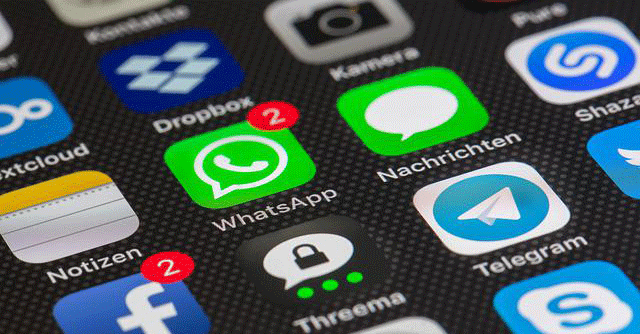
Communication apps including Whatsapp, Telegram may face license regime


Social media apps such as Whatsapp, Signal and Telegram may have to take up licenses to operate in India as the government has broadened the definition of telecommunication services to include over-the-top or OTT communication service providers, internet-based communication services and broadcasting services among others under the draft telecom bill.
Sector experts said that the new definition could trigger the debate for same-service-same-rules being sought by telecom service providers, while lead to sharing revenues with the government as a licensed entity.
“There is anxiety regarding what the licensing would be since telecom companies argue for same-service-same-rules or even need for data localisation. This can create challenges for smaller, independent apps that are not as big as Whatsapp and may exit India,” cautioned Apar Gupta, executive director at Internet Freedom Foundation.

The draft bill includes OTT communication services in the definition of telecommunication services which by extension means that Whatsapp, Signal, Telegram and others could be brought under a licensing framework, he added.
“OTT communication services being included in the ambit of telecommunication indicates that licensing, license fee and share of revenue from AGR with the government could be in the works,” said Rohan Dhamija, managing partner, India and Middle East at Analysys Mason.
Some experts say that owing to the legislation, the apps could also fall under the regulatory ambit of the Telecom Regulatory Authority of India, the autonomous body tasked with regulating the telecommunications sector, but some disagreed stating that such apps were already regulated under the IT intermediary rules issued in 2021.

“Potentially, TRAI could come into the picture again for regulating such service providers or apps,” Dhamija added. The TRAI Act empowers it to regulate telecommunication services including broadcasting and cable services.
TRAI had issued a consultation paper in 2018 for bringing a regulatory framework for OTT apps that permitted communication over voice or data. But in September 2020, it decided not to proceed with any regulations after holding consultations with several stakeholders. It had noted that it could review it later on.
“The way things appear right now, there may possibly be a licensing regime (or regulations by TRAI or the DoT) for these services, but it is still early days, and the stakeholder consultations and more clarity on the government’s intent may mitigate concerns,” said Arun Prabhu, partner and head of telecom, media and technology TMT Practice, Cyril Amarchand Mangaldas.

He added that the aspects such as coherence of the bill with the current regulatory framework, potential overlaps, the extent of delegation and a possible lighter touch approach to certain types of activities including OTT, should be addressed over the course of the consultation process.
The draft bill has sought stakeholder consultations till 20 October before it is taken up for further discussions within the government, taking the requisite steps for the bill to become a law.
